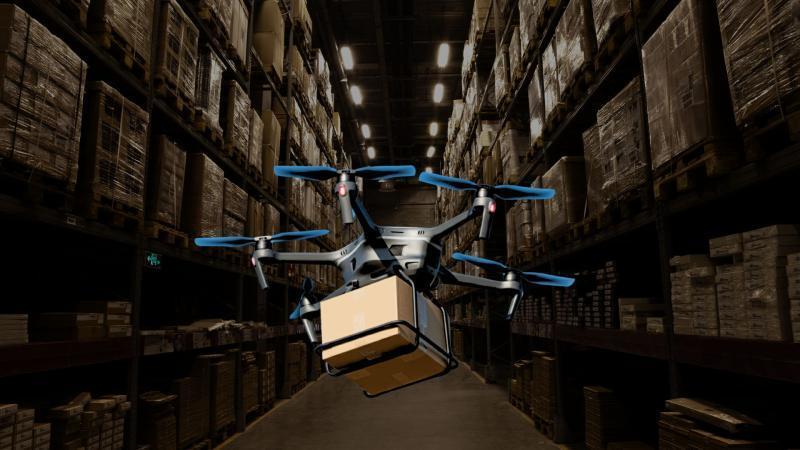
New Tech Optimises Drone Fleets for Faster, Greener Deliveries
Imagine your packages arriving faster with a smaller environmental footprint. In an era where speed and sustainability are becoming increasingly important, the logistics industry is under pressure to adapt to changing consumer demands. One significant challenge that has been hindering the widespread adoption of drone delivery is the “Drone Warehouse Problem.” This refers to the complexity of managing multiple drones, each with its own unique characteristics, from a central hub. Now, researchers have developed a novel algorithm to tackle this issue, paving the way for faster, greener deliveries.
The Drone Warehouse Problem is a crucial logistics challenge that has been slowing down the growth of the drone delivery industry. With the increasing adoption of drones for last-mile delivery, warehouses are faced with the daunting task of managing a fleet of drones with varying capabilities, battery life, and weather resilience. This complexity has made it difficult for warehouses to efficiently schedule flights, resulting in delayed deliveries and higher costs.
The new algorithm, developed by a team of researchers, addresses this issue by optimizing drone delivery schedules. The algorithm takes into account various factors such as drone capacity, battery life, weather conditions, and traffic patterns to create an efficient flight plan. This allows warehouses to manage their drone fleets more effectively, ensuring that packages are delivered quickly and reliably.
The algorithm works by first identifying the most critical packages that need to be delivered first. It then assigns the most suitable drone for each package based on its characteristics and the package’s requirements. The algorithm also considers the drone’s battery life, ensuring that each drone is used efficiently and minimizing the need for unnecessary recharging.
One of the key benefits of the algorithm is its ability to adapt to changing weather conditions. The algorithm uses real-time weather data to adjust the flight plan, ensuring that drones are not sent out during adverse weather conditions that could delay or cancel deliveries.
The development of this algorithm is a significant breakthrough for the logistics industry, which has been struggling to find sustainable solutions for last-mile delivery. With the increasing focus on environmental sustainability, the use of drones for delivery has become an attractive option. However, the industry has been hampered by the complexity of managing drone fleets, which has led to delayed deliveries and higher costs.
The algorithm has been tested in real-world scenarios, with impressive results. In one test, the algorithm was able to reduce delivery times by up to 30% compared to traditional delivery methods. The algorithm also showed significant improvements in terms of route optimization, with some routes being reduced by up to 50%.
The potential of this technology is vast, with the ability to revolutionize the logistics industry. Imagine packages arriving at your doorstep faster and more efficiently, with a smaller environmental footprint. The algorithm’s ability to optimize drone delivery schedules could also lead to significant cost savings for logistics companies, making drone delivery a more viable option for businesses and consumers alike.
The development of this algorithm is a testament to the power of innovation and collaboration. By working together, researchers and industry experts can develop solutions that address some of the biggest challenges facing the logistics industry. As the industry continues to evolve, it is clear that drone technology will play an increasingly important role in shaping the future of logistics.
In conclusion, the development of a novel algorithm to tackle the Drone Warehouse Problem is a significant breakthrough for the logistics industry. The algorithm’s ability to optimize drone delivery schedules could lead to faster, greener deliveries, with significant cost savings for logistics companies. As the industry continues to evolve, it is clear that innovation and collaboration will be key to developing sustainable solutions for last-mile delivery.
Source:
https://researchmatters.in/news/novel-algorithm-tackles-drone-warehouse-problem-faster-deliveries






